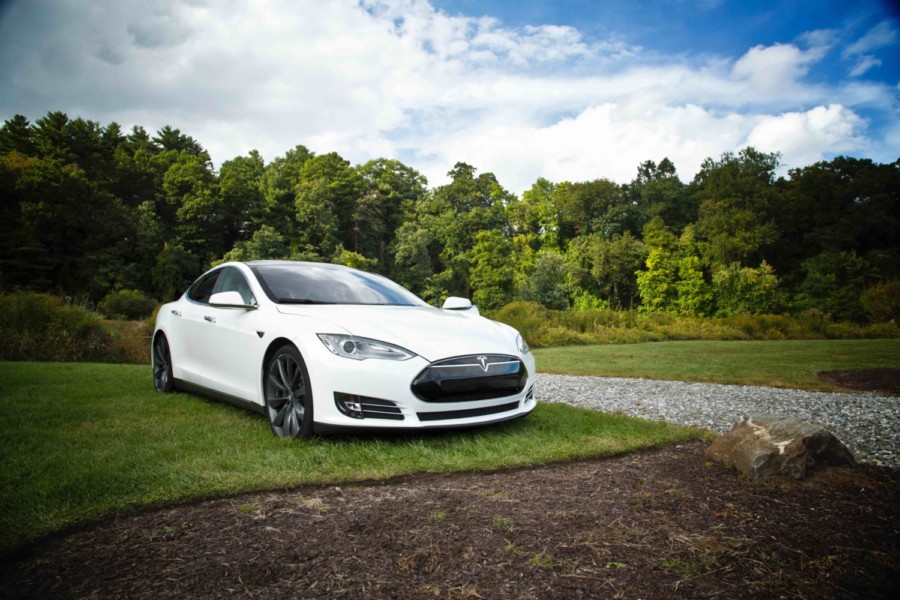01 November 2017
Buying a company car can be an expensive investment. So if you’re looking to provide a vehicle through your company, it’s important to look for the most tax-efficient and cost-effective way to do this.
When you buy a car, it boils down to asking two key questions:
We’ve summarised the key considerations when buying a car through a company, so you can see which option makes most sense for you, your business and your tax bill.

The first thing to bear in mind is that having a company car has an impact on your personal tax. HM Revenue & Customs (HMRC) sees a company car as a ‘Benefit in Kind’ (BIK), and that has a direct impact on the amount of tax that will be due from any monthly PAYE salary.
So when looking at a company car, you’ll need to think about:
BIK rates can rise year on year, which will mean that the tax impact of driving your dream car will also rise. With this change in mind, it’s more important than ever to purchase your vehicle in the most tax-efficient way.
The Benefit in Kind is calculated based on the list price of the car when it was first new – this is not necessarily the cost that the company paid for the car.
The list price is revised to include any additional accessories that were provided with the car (such as leather seats or a SatNav), plus any additional accessories greater than £100 after the car was first provided. The list price is also reduced by any capital contributions that you pay to the company towards the car, capped to £5,000.
This gives the revised list price. The revised list price is multiplied by the BIK rate to give the car benefit.
The benefit is scaled by time apportionment (allowing for any periods for which the car was not made available to you) and any contributions that you pay to your employer for the private use of the car are also deducted.
HMRC’s Car Benefit calculator is a useful tool that you can use to calculate what your car benefit charge will be.

For employees that rack up a lot of business mileage, the sweetener has always been the knowledge that they can claim back Mileage Allowance Payments to cover some of their travel expenses. But if you’re using a company car as a private vehicle, then you’ll lose the ability to claim the usual 45p/mile travel expenses.
One way to overcome this is to opt for a light commercial vehicle (a pick-up or small van etc.) rather than a company car. This way, an employee of the company can still claim back work-related mileage – there’s more about company vans on the HMRC site here.
The tax rules are reasonably simple if you go for the light commercial vehicle option. Any business use of the van, or commuting to and from work, is seen as tax exempt by HMRC. This wouldn’t be the case with a company car, so the van option has a key advantage in this respect.
The driver of the company van can use it for their own private use as well, but they will incur a certain amount of BIK tax by doing so – £3,500 as standard for the 2021-22 tax year – so bear this in mind.

Electric vehicles used to be exempt from the BIK rules, and were a good tax-efficient option. But since the 2016-17 tax year, you now have to report on these ‘zero-emission vehicles’. From the 2021-22 tax year, even fully electric cars with zero emissions are seen as a ‘Benefit in Kind’ and are taxable.
Although you do have to report on your zero-emission/electric van, you pay the related BIK tax at a reduced rate of 20% of £3,500 (£700). So going green is no longer a tax-free option, but it does compare favourably with choosing a petrol or diesel-powered vehicle.

Using a light commercial vehicle or van may sound like an attractive option. But how do these figures stack up for the average user?
Let’s look at an example of how the tax works out in practice:
A plumber uses a company van for work and is provided with free fuel. She’s a basic rate taxpayer and will be using her van privately.

There is a separate benefit for the provision of fuel for private use. If an employee is provided with any fuel for private motoring during a tax year, they are assessed on a separate benefit.
The car fuel benefit charge is £24,600 for the 2021-22 tax year, and the van fuel benefit charge is £669 for the 2021-22 tax year. Unlike the car benefit, the fuel benefit charges cannot be scaled down based on availability.
If the employer only pays for fuel for business purposes, or the employee pays for fuel for private use, or all fuel, then no benefit will arise.
Working out the exact amount you’ll pay in tax for having access to a company car or commercial vehicle is a complicated task, with a number of different variables for the company to take into account.
However, it’s worth exploring all the avenues that are open to you and your employees.
With a proper review of the specifics of a car owner’s situation, it’s possible to reduce what’s lost to tax and provide your team with vehicles that add value for them and the business as a whole.
Based in Wick, between Bristol and Bath the FD Works team of accountants work with ambitious business owners throughout the South West and across the UK. We help you organise your data, understand your business and provide actionable insight.
We'll help you choose a company vehicle in the most cost-effective way
Give us a call